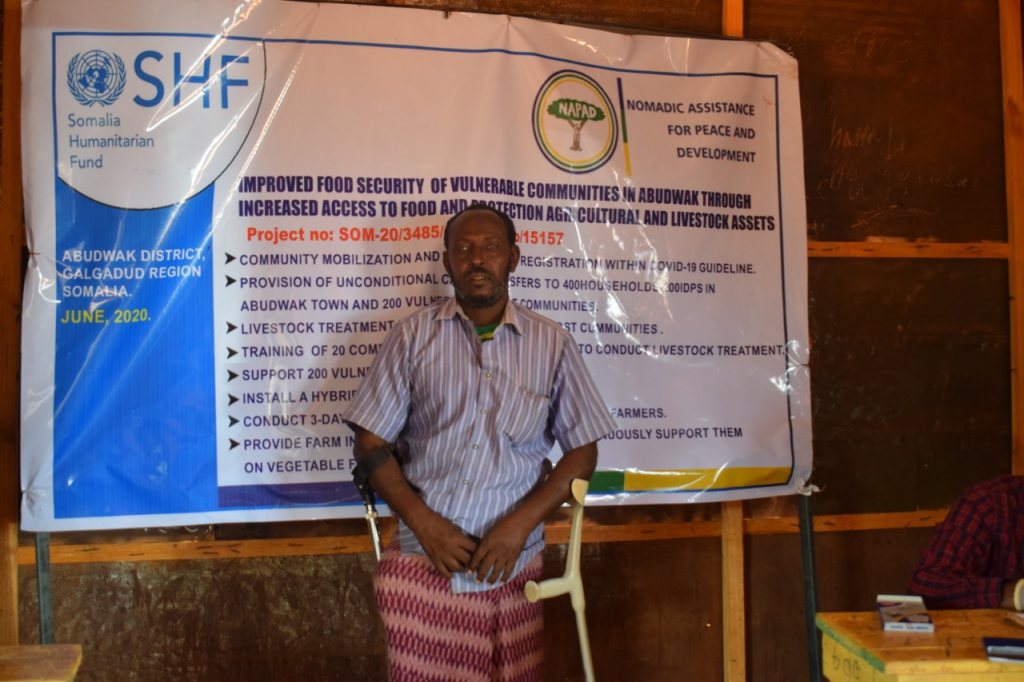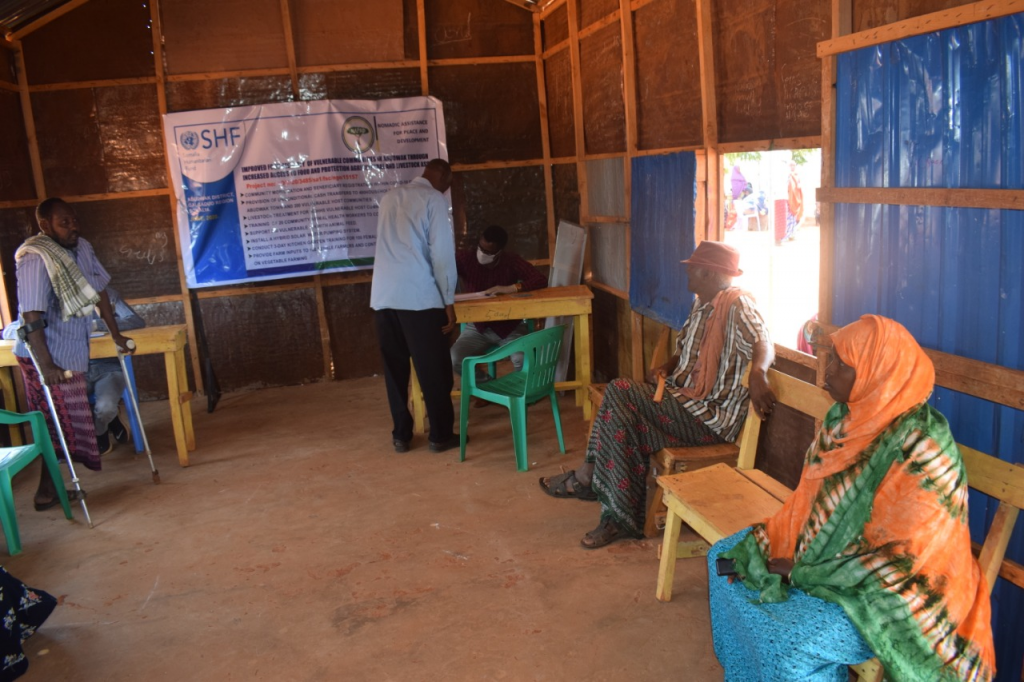In recent years, climate-related shocks, mainly drought and flooding, have increased in frequency and intensity, intensifying humanitarian needs and undermining resilience at the household and community levels.
Jamac Xaashi Abdille, a 45-year-old father of seven children who lives in Barwaaqo Village in Abduwaak district Somalia slowly proceeds to the Nomadic Assistance for Peace and Development (NAPAD) beneficiary registration centre. Like many families who are struggling to recover from recurrent calamities of drought over the past couple of years, life has not been easy for him and his family. His vulnerability has been heightened by his physical impairment which limits his ability to travel far and wide to access other forms of livelihoods.

A near-constant cycle of drought and conflict has forced my family to flee a number of times, surviving on the generosity of locals and support of relatives who offered food and other assistance. We barely have enough to live on. As a Person Living with Disabilities (PWD) this makes it even harder for me to carter for my family,” he continues.
To improve the food security of vulnerable communities in Abudwak, NAPAD with funding from Somalia Humanitarian Fund (SHF) is implementing an eight-month project that will increase immediate access to food, protection of livestock assets, and diversification of livelihoods by this majorly pastoralist community.
In Barwaaqo village Abduwak district, NAPAD is conducting registration of beneficiaries for unconditional cash transfers (UCT). As opposed to previous years, the beneficiaries are moving in queues to maintain physical distancing as they eagerly wait to be served. Previously these exercises would typically be characterized by people in small crowds or seated next to each other catching up waiting to be served.
Things can not remain business as usual.
Fatuma Abdullahi

“Things cannot remain business as usual, the pandemic has remodeled our operations as a humanitarian organization working in a fragile context. We have put in place measures to ensure social distancing especially in our community engagements,” Says Fatuma Abdullahi, a project Manager in NAPAD.
As Jamac waits to be served, he is optimistic that the cash transfer will provide food for his family.
“Thanks to Allah, I was included in the programme as one of the people who will receive 124 USD per month for three months through Mobile money transfer. This will improve our lives. I will be able to buy food for my children.” says Jamac.
The project will see 200 IDPs in Abudwak, and 200 vulnerable host communities receive 124 USD in unconditional cash transfer for three months. The UCT will help cushion the already heavy burden of these IDP communities that has been aggravated by the COVID 19 pandemic. NAPAD partnered with the local government to ensure the beneficiary selection process was inclusive to persons with disabilities like Jamac.
